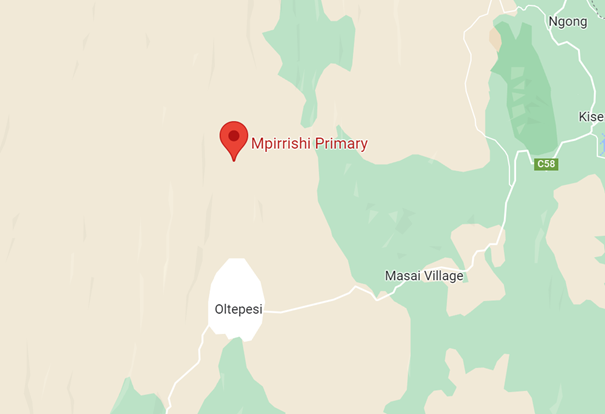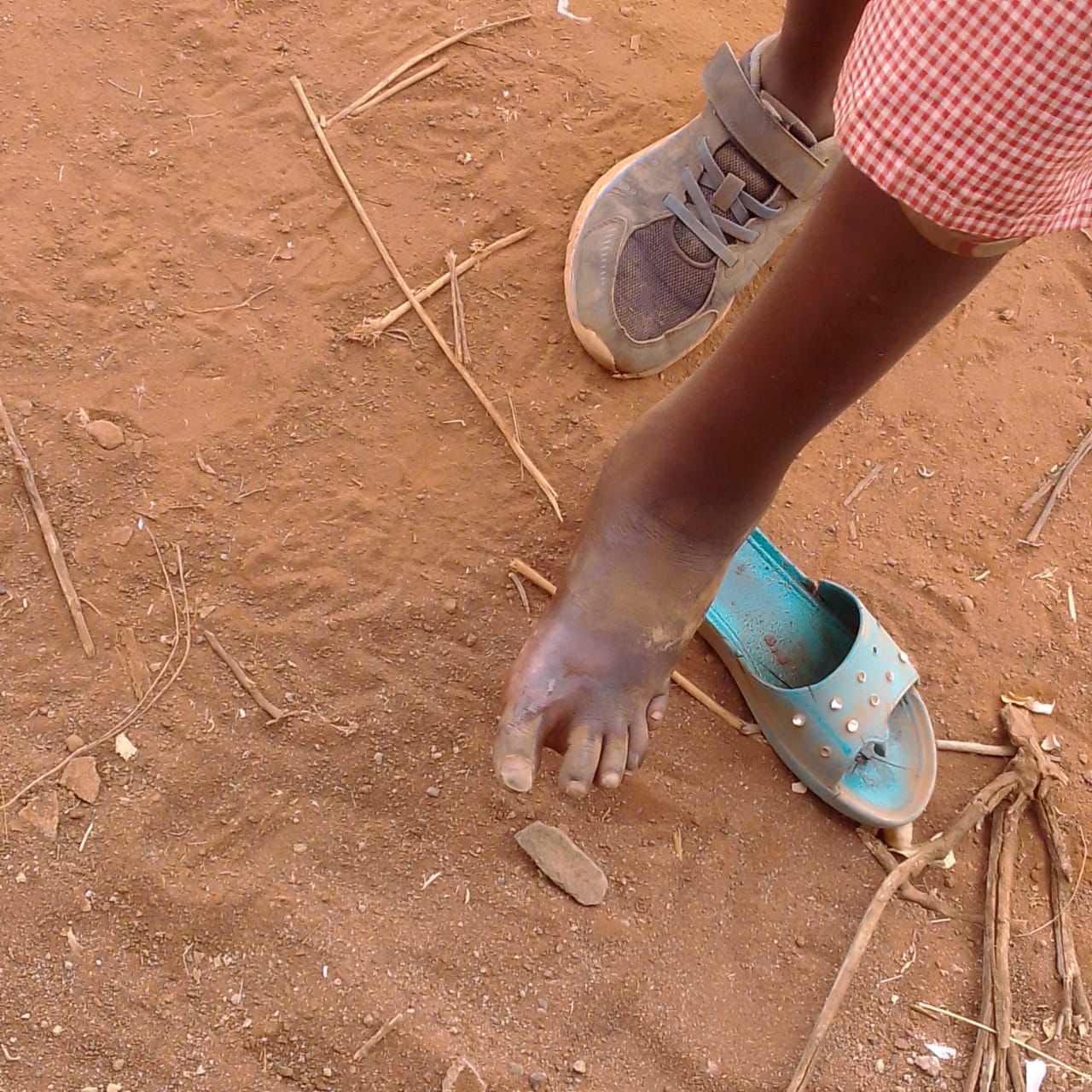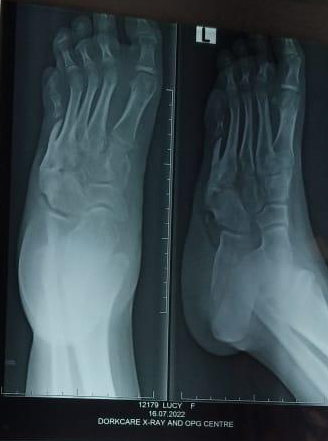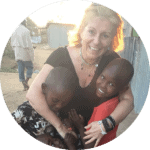
Who is Lucy?
Lucy is a 15-year-old girl from Mperrishi, a remote Maasai settlement. In Mperrishi, time seems to have stood still. The people there live in isolation from modern civilization—there is no running water, no toilet, no electricity, and no access to medical care.


Lucy has rarely attended school in the past two years due to constant pain. About two years ago, she broke her foot, but the fracture was not treated medically. Instead, it was supported using branches, following the traditional Maasai technique. This caused the fracture to heal incorrectly and resulted in a chronic infection in her foot.


How did we get to know Lucy?
When Lucy approached us, she was wearing two different shoes because her left foot had swollen so badly that it only fit into one open shoe.
Lucy’s mother passed away a few years ago, and she now lives with her grandmother. Over time, the infection in Lucy’s foot became so severe that it started to emit a foul, pungent smell. The villagers began to avoid her, saying that Lucy smelled of death and would soon die.
Saving Lucy’s foot
Our local contact, Agnes Gitonga, organized Lucy’s transport to a hospital in Nairobi. Initially, the doctor was unsure whether the condition was cancerous. After an anxious week, the results showed that it was a severe chronic infection with benign ulceration. The doctor immediately emphasized that returning to her village with the open wound was not an option due to the lack of hygiene necessary for proper care.


Agnes therefore placed Lucy with a woman she knew and provided her with the bare necessities such as clothes and food.
Culture shock for Lucy
Apart from the fact that Lucy now has hope for a pain-free future and will not lose her foot, there were many things she experienced for the first time during her stay in Nairobi:
- Visiting Nairobi
- Staying in a hospital
- Using a toilet (although she didn’t know how to use it at first)
- Experiencing electricity (she was amazed by the ability to switch on and off a light)
- Eating sausage and potato chips for the first time (she was initially skeptical about the sausage,as its appearance didn’t match her idea of meat)
It’s not an exaggeration to say that Lucy underwent a real culture shock. Agnes will also provide her with schoolbooks so that she can catch up on her missed education. Additionally, Agnes plans to talk to Lucy’s grandmother and try to convince her that Lucy should attend the Nasaru Masai Girls Learning Center, where she can catch up on school material and, most importantly, be protected from FGM.
What’s next for Lucy?
So far, the cost of saving Lucy’s foot has amounted to around CHF 2,000. This raises an interesting question that has been discussed in the Western world in recent years: what is the value of a human life? What is a foot worth?
While Lucy’s foot has already improved significantly, she will need to stay in Nairobi until the wound is completely healed.

We will continue to support Lucy, but we need your help. We are urgently seeking a sponsor for Lucy.
If you are interested, please contact us at:
hello(at)wecare-association.com
We would like to emphasize once again that 100% of donations to the WeCare-Association go directly to the recipients. All administrative and marketing costs are fully covered personally by us.
For donations to the WeCare-Association please use the following account details:
WeCare-Association
Credit Suisse AG
CH – 8070 Zurich
IBAN: CH92 0483 5212 0106 4100 0 (donations in CHF)
Swift Code: CRESCHZZ80A
IBAN: CH58 0483 5212 0106 4200 0 (donations in EURO)
Swift Code: CRESCHZZ80A
THANK YOU!



